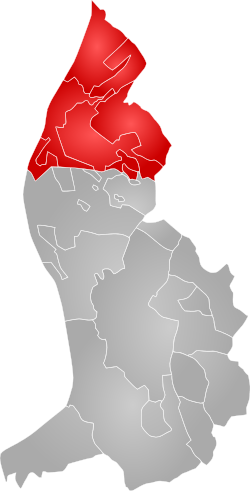This article includes a list of general references, but it lacks sufficient corresponding inline citations .(February 2025) |
Unterland Wahlkreis Unterland | |
|---|---|
 | |
| Coordinates: 47°14′0.98″N9°32′53.01″E / 47.2336056°N 9.5480583°E | |
| Country | |
| Seat | |
| Municipalities | 5 (Eschen, Gamprin, Mauren, Ruggell, Schellenberg) |
| Area | |
• Total | 34.8 km2 (13.4 sq mi) |
| Population (2019) | |
• Total | 13,986 |
| Time zone | UTC+1 (CET) |
| • Summer (DST) | UTC+2 (CEST) |
| Area code | (+423) |
Unterland (German : Wahlkreis Unterland), meaning "lower land", is one of the two electoral districts of Liechtenstein. [1] The district's administrative seat is the town of Schellenberg, due to its historical existence as the Lordship of Schellenberg (German : Herrschaft Schellenberg). It has 10 seats in the Landtag.